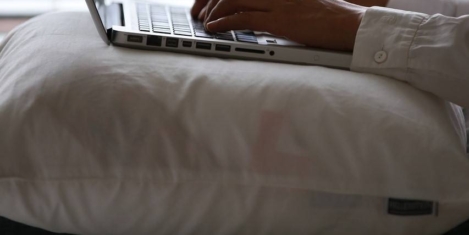To provide the best experiences, we use technologies like cookies to store and/or access device information. Consenting to these technologies will allow us to process data such as browsing behaviour or unique IDs on this site. Not consenting or withdrawing consent, may adversely affect certain features and functions.
The technical storage or access is strictly necessary for the legitimate purpose of enabling the use of a specific service explicitly requested by the subscriber or user, or for the sole purpose of carrying out the transmission of a communication over an electronic communications network.
The technical storage or access is necessary for the legitimate purpose of storing preferences that are not requested by the subscriber or user.
The technical storage or access that is used exclusively for statistical purposes.
The technical storage or access that is used exclusively for anonymous statistical purposes. Without a subpoena, voluntary compliance on the part of your Internet Service Provider, or additional records from a third party, information stored or retrieved for this purpose alone cannot usually be used to identify you.
The technical storage or access is required to create user profiles to send advertising, or to track the user on a website or across several websites for similar marketing purposes.
 Businesses and employees are calling on the UK Government to provide more protection for those who work in the gig economy. In a survey of nearly 5,000 workers and over 100 businesses by jobs site totaljobs, 90 percent of employees and 87 percent of employers said that more regulations were needed to protect the rights of gig workers. In addition, 64 percent of employers believe the gig economy’s importance will only continue to grow in the next year, as individuals turn to self-employment in favour of more flexible working arrangements.
Businesses and employees are calling on the UK Government to provide more protection for those who work in the gig economy. In a survey of nearly 5,000 workers and over 100 businesses by jobs site totaljobs, 90 percent of employees and 87 percent of employers said that more regulations were needed to protect the rights of gig workers. In addition, 64 percent of employers believe the gig economy’s importance will only continue to grow in the next year, as individuals turn to self-employment in favour of more flexible working arrangements.












 The future workplace will replace familiar, rigid hierarchies and departments with small, collaborative networks of teams and the lines between individual organisations and ecosystems will blur as companies increasingly cast their net wider to innovate. This is one of the predictions made in a Fujitsu-commissioned whitepaper ‘
The future workplace will replace familiar, rigid hierarchies and departments with small, collaborative networks of teams and the lines between individual organisations and ecosystems will blur as companies increasingly cast their net wider to innovate. This is one of the predictions made in a Fujitsu-commissioned whitepaper ‘






 British workers are lagging behind employees from other countries when it comes to flexible working hours and benefits like extended leave, suggests new research. New independent research commissioned by travel specialists Opodo.co.uk compared Britain with other nations across Europe and the USA, which reveals that British companies are lagging behind other businesses when it comes to flexible working. Three-quarters of employees in the UK (75 percent) don’t believe they have a generous holiday allowance and 84 percent aren’t offered time back in lieu for days worked over the weekend. It’s of no surprise then that 69 percent of Brits don’t think they have a good work-life balance.
British workers are lagging behind employees from other countries when it comes to flexible working hours and benefits like extended leave, suggests new research. New independent research commissioned by travel specialists Opodo.co.uk compared Britain with other nations across Europe and the USA, which reveals that British companies are lagging behind other businesses when it comes to flexible working. Three-quarters of employees in the UK (75 percent) don’t believe they have a generous holiday allowance and 84 percent aren’t offered time back in lieu for days worked over the weekend. It’s of no surprise then that 69 percent of Brits don’t think they have a good work-life balance.













October 20, 2017
Seven workplace stories we think you should read this week (apart from ours)
by Mark Eltringham • Comment, Facilities management, Technology, Workplace design
Automation and Artificial Intelligence bullshit
Science in the gig economy
The seven deadly sins of AI predictions
The flight of people back to the suburbs
The changing psychology of the workplace
The rock and roll workplace